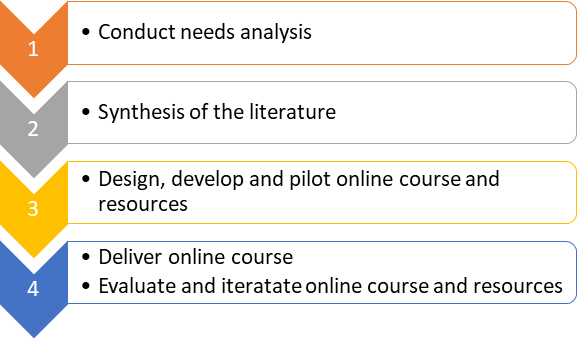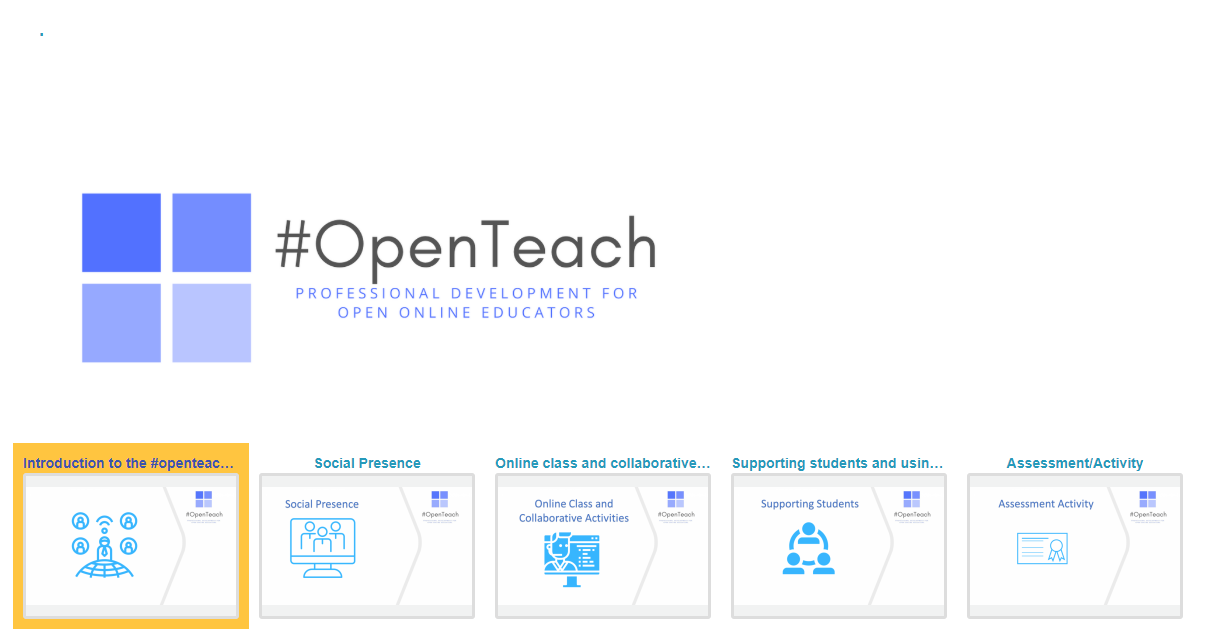1.3 The #Openteach story
About the project
The #Openteach: professional development for open online educators project aimed to develop a flexible and evidence based approach to support professional learning for those who teach online. The #Openteach: Professional Development for Open Online Educators project, was funded by the National Forum for the Enhancement of Teaching and Learning in Higher Education in Ireland from 2019-2020 and was based in Dublin City University (DCU) in Ireland.

The #Openteach project aimed to develop a flexible and evidence based approach to support professional learning for those who teach online. The project targeted two groups of educators in particular: part time educators and online educators. The rationale for this was Continuing Professional Development (CPD) is recognised as crucial to the upskilling of educators to enhance the student learning experience. However, an important gap exists in the provision of CPD for part-time and online teachers. As they rarely have the opportunity to avail of campus-based resources they may consequently have limited access to professional development. The #Openteach project sought to address this gap by creating a flexible online open access course about teaching online which was grounded in evidence based practice.
The project had four phases, see the diagram below:

Phase 1
In phase one, we conducted a needs analysis of online educators and online students based in Dublin City University. Data was collected through online focus groups and several questionnaires. We then produced a report detailing our findings called An investigation of effective online teaching: a needs analysis of online educators and online students (Farrell, Brunton, Costello, Donlon,Trevaskis, Eccles, Ní Shé, 2019). Principal findings from this report were five key areas that educators identified to enhance through professional development:
1. Technical skills for teaching online; 
2. Online learning & teaching pedagogy;
3. Online facilitation skills/approaches;
4. Encouraging online interaction;
5. Community of online educators.
Further, the findings indicated that both online educators and online students found that interpersonal professional skills and clear communication were key features of effective teaching online.
Phase 2
In phase two, we examined the literature around teaching online and conducted a literature synthesis. Following this we published our literature report called Teaching online is different: critical perspectives from the literature (Ní Shé, Farrell, Brunton, Costello, Donlon, Trevaskis, Eccles, 2019). The report examined the literature about online teaching since 2010 and examined the roles and competencies which characterise effective teaching online, as well as approaches to supporting the professional development of online educators.
Phase 3
In phase three, we used the information from the needs analysis report and literature report to begin design and developing the #Openteach open online course. The course was designed following the ABC Learning design approach, which resulted in a ten hour, fully online professional development course (Ní Shé, Farrell, Brunton, Costello, Donlon, Trevaskis, Eccles, 2019). You can read more about the design process in our ABC case study. The course focused on five aspects of teaching online:
- Presence
- Collaboration online
- Synchronous teaching
- Asynchronous teaching
- Supporting online students
The course was designed and delivered on the DCU moodle site called Loop, and followed a largely asynchronous approach.

Phase 4
Phase 4 involved running the course. The #Openteach open course ran for the first time in March 2020 and the second time in September 2020. The first run coincided with the start of the Covid-19 pandemic, which resulted in a much higher number of participants than we had expected, 450 (we had originally expected less than 80 participants). Following the first course run, we conducted an evaluation study to explore and understand participants learning experiences of the course. An evaluation report was produced called The Openteach Pilot Evaluation Report (Farrell, Brunton, Costello, Donlon, Trevaskis, Eccles, Ní Shé, 2020).

Now that the #Openteach project is finished, we aim to continue to share the knowledge, resources and research generated by the #Openteach project through this open textbook.

